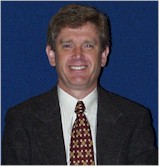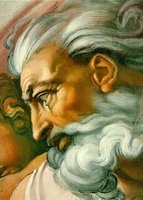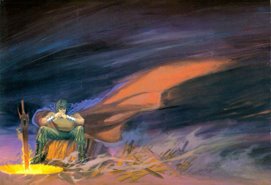Open Theism: Introduction
What Is Open Theism?
Only a few decades earlier, C.S. Lewis could confidently assert, “Everyone who believes in God at all believes that He knows what you and I are going to do tomorrow.” Even my non-Christian colleagues are fond of saying, “I have no idea about what will happen. Only God knows!”[2]
However, a group of prominent scholars identified with the evangelical movement has recently rejected the classical understanding of God’s foreknowledge. David Basinger, one of its proponents, outlined some features of open theism relevant to our present discussion. Unlike Deism, the God of open theism created the world out of nothing and could intervene in earthly events by His sole initiative. However, in order to pursue a genuine relationship with human beings, He has also chosen to create us with libertarian freewill, which even he cannot totally control. [3] For this ‘creation project’ to be successful, God does not unilaterally override their freedom even if it may frustrate His desire for our highest good. [4]
David Basinger, one of its proponents, outlined some features of open theism relevant to our present discussion. Unlike Deism, the God of open theism created the world out of nothing and could intervene in earthly events by His sole initiative. However, in order to pursue a genuine relationship with human beings, He has also chosen to create us with libertarian freewill, which even he cannot totally control. [3] For this ‘creation project’ to be successful, God does not unilaterally override their freedom even if it may frustrate His desire for our highest good. [4]
Although He has complete knowledge of the past and present, God does not know everything about our future choices even though He could predict them with great accuracy. [5] In spite of such formidable accuracy, it is still possible for God to be surprised or mistaken in His predictions in any context involving freedom of choice.[6] For if God already knows that I would only eat bread for breakfast tomorrow, then I could not have chosen otherwise (i.e. skip breakfast). In libertarian view of freewill, I am not genuinely “free” unless I have the ability to do otherwise.  One of the attractive claims of open theism is its perceived resonance to Christian spiritual life. It argues that the traditional view of an all-knowing God is less compatible with our experience of prayer as a genuine dialogue with a relational God in which the future is not settled. [7] Let us evaluate these claims by exploring pastoral implications on three crucial facets of prayer - namely, our requests for God to act in our lives, seeking His will for decision-making and responses in the midst of pain and suffering.
One of the attractive claims of open theism is its perceived resonance to Christian spiritual life. It argues that the traditional view of an all-knowing God is less compatible with our experience of prayer as a genuine dialogue with a relational God in which the future is not settled. [7] Let us evaluate these claims by exploring pastoral implications on three crucial facets of prayer - namely, our requests for God to act in our lives, seeking His will for decision-making and responses in the midst of pain and suffering.
Before we proceed further, it would be helpful to provide a brief outline of the classical understanding of God’s foreknowledge. In classical theism, the personal-infinite God created the world out of nothing and supernaturally intervened in the world. He is also supremely wise and able to infallibly foretell future events, which involve millions of human choices. Divine sovereignty over every specific event in the universe is seen as compatible with human responsibility as moral agents. [8] Genuine human freedom could also be understood as the ability to do what we ultimately want in any given situation. In this sense, freewill is not autonomous or self-ruled, but determined by a complex combination of our personal character, habits, circumstances and often-conflicting set of desires and motives. Even though God already knows that I would only eat bread for breakfast tomorrow, I am still free as long as the choice is determined by my preferences at that time. Even for those Christians who hold to libertarian view of freedom, God still foreknows the future because He is ‘beyond time’ as expounded by C.S. Lewis or by virtue of ‘middle knowledge’ as represented by philosopher William Lane Craig.[9]







No comments:
Post a Comment